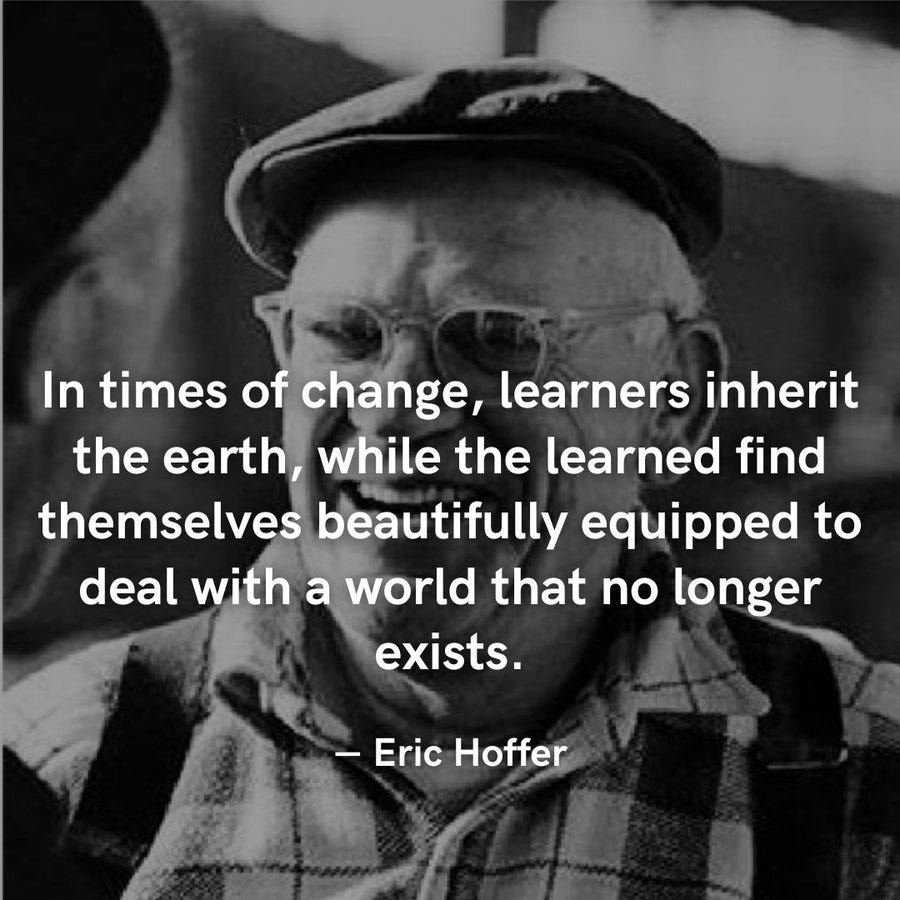'Dr. McLuhan, Do You Want to Be Famous?'
A story on how fame is rarely an accident
In 1964, a San Francisco man put down a book he was reading and decided to make the author of that book famous.
The author was a Canadian English professor named Marshall McLuhan.
The reader was Howard Luck Gossage, an ad man known as the “Socrates of San Francisco” for his ability to bring together intellectual salons.
He also had a knack for translating highbrow concepts into language that could be grasped.
As the story goes (attributed to a 2012 biography of Gossage by Steve Harrison), Gossage was in bed reading McLuhan’s dense, and dizzyingly brilliant 1964 book, Understanding Media: The Extensions of Man.
He looked up from the book, turned to his wife, and said of McLuhan’s sometimes cryptic writing, “I get it!” and then added, “It needs to be filled in. I’m going to fix it.”
Shortly thereafter he had the Canadian professor on the phone and asked, “Dr. McLuhan, do you want to be famous?”
With the 53-year-old professor’s consent, Gossage and his friend Dr. Gerald Feigen, a proctologist and ventriloquist, spent $6,000 to fly McLuhan to New York and introduce him to the city’s tastemakers (including, and most importantly, novelist and influential journalist Tom Wolfe).
Without these relationships, he may have remained a well-regarded but obscure academic.
With them, he became a pop-cultural icon.
Throughout the second half of the 1960s, McLuhan had bookings on major TV programs, consulting contracts with Fortune 500 firms, and lengthy profiles in newspapers and magazines.
His ideas, albeit somewhat mangled forms of them, have become part of our common lexicon.
The medium is the message.
The global village.
And while McLuhan earned his fame — a captivating, hypnotic speaker, he dazzled even the brightest hosts with a ceaseless stream of ideas — the opportunity to earn it came from Gossage.
There’s nothing odd about this.
Beethoven would not have become Beethoven without the early support of generous patrons who connected him to resources, audiences, and future patrons.
Influential people beget influential people.
It’s an uncomfortable truth that proximity to platforms — those who have an audience, a voice, a following — is the only way to be heard.
Not in 1795, not in 1965, and not today, is the economy of attention egalitarian.
That the greatest media theorist of the last 50 years needed to hack the systems of media to be heard would not have surprised him.
That’s one thing I’ve learned in my 15 years in media and PR: the difference between the renowned and the unknown is less a matter of talent than of who you know.
When I can, I try to help friends to leverage what I know. (That’s what I ended up putting in the course I released.)
I’ve seen mediocre people become famous, and worthy people go ignored.
How well are you being heard?
What’s Coming Next
On Monday, the program where I’ll be teaching two lessons opens up. The other teachers are great—honored to be among them.
I’ll be teaching one module on how to source and cut video clips for Twitter.
The other will be a guide on how to get yourself published in (or featured by) the media.
There are a lot of misconceptions, and not a lot of practical resources.
If you’re interested, you’ll be the first to know when it opens.
Until the next time,
Ben
PS - The first video I share that was liked by Elon Musk was this clip of Marshall McLuhan from 1977. If you haven’t seen it already: enjoy.




